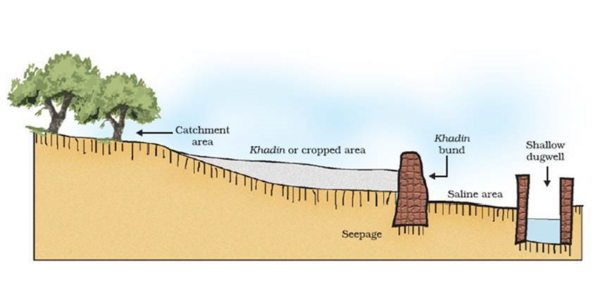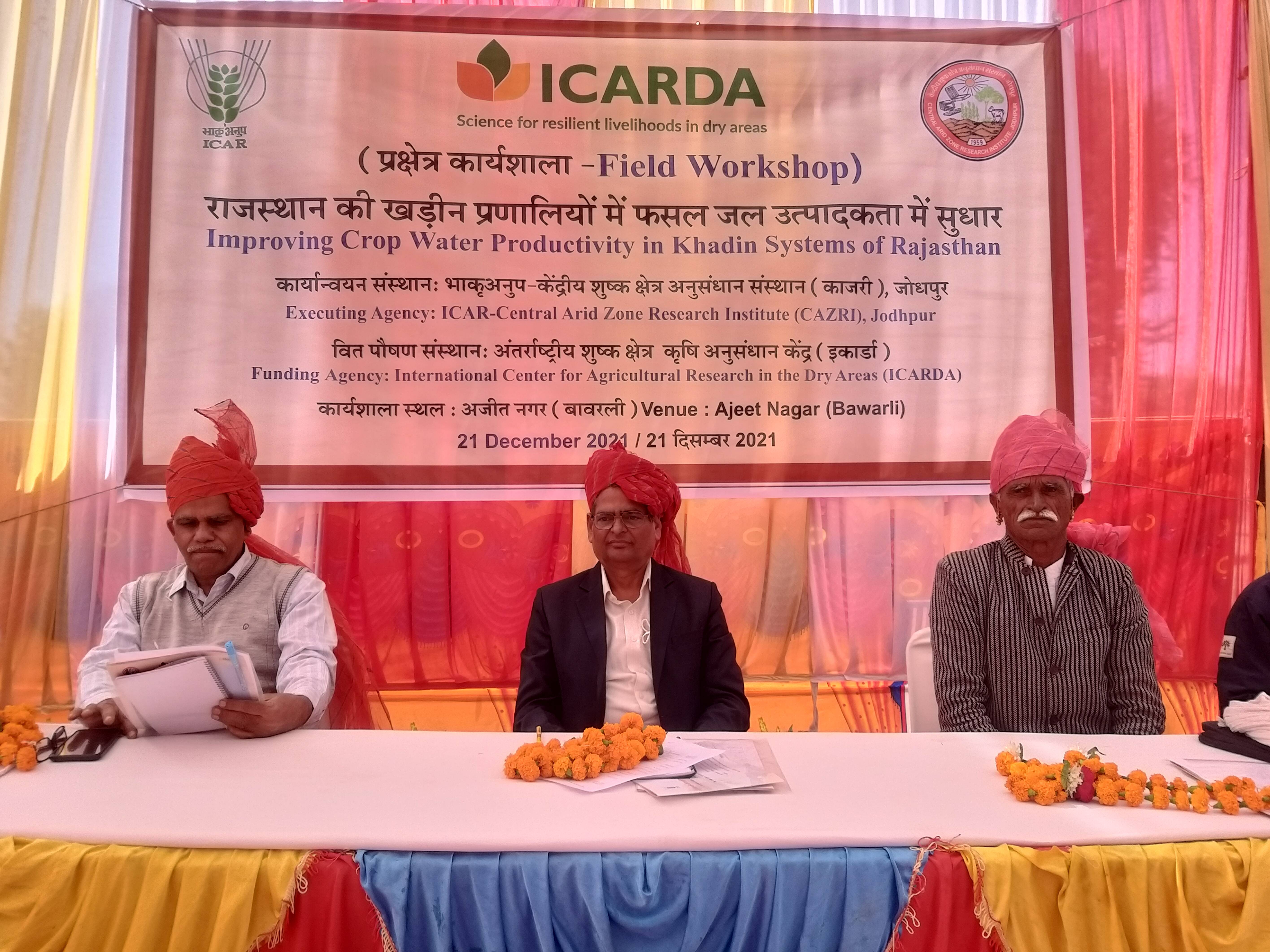Farmer Field Workshop on Improved Rainwater Harvesting Systems

Adverse effects of climatic variability are more pronounced in the dry areas leading to vulnerable, unsustainable, and unpredictable farming. Rain-fed crops are likely to experience a decline in average annual yields with the predicted climate change, especially staple foods such as wheat and maize.
Decades of research, trials, and testing conclude that sustainable ecosystems on agricultural lands can be achieved through combinations of multiple water management technologies – rather than using single technologies on their own.

In Rajasthan state in Western India, Khadin is a common rainwater harvesting practice that involves an indigenous in-situ rainwater harvesting system in which bunds are made around fields to stagnate and seep rainwater into the soil and sow marginal crops in the residual moisture.
Khadin alone is not enough for effective rainwater management because it does not allow farmers to measure, monitor, or manage soil moisture. In turn, they tend to make risk-averse crop and farm inputs such as fertilizers and improved seed varieties investment in farm mechanization, etc.
In response, ICARDA, in partnership with the Central Arid Zone Research Institute (CAZRI), with support from the Government of India to the CGIAR, is implementing a project on improving the economic water productivity (income per unit water applied) of the Khadin-based farming systems. The project couples Khadin with a lined rainwater harvesting structure and applies water using farmer-led solar-powered irrigation systems.
This method allows for better control over when and how much water is used, thus, allowing farmers to grow highly profitable crops such as fruits and vegetables that are sensitive to water stress.
The communities in the project areas found that this amalgam of technologies integrated with Khadin positively impacted their lands. By providing knowledge to communities on crop choice, cropping calendar, amount, and the number of doses of supplemental deficit irrigation in the winter season and other agronomic practices, the farmers were able to adopt the whole package of improved Khadin system.
Our approach always puts the knowledge, experience, and challenges of the communities we serve at the center of our research. We believe this is the only way to ensure a future where small-scale farmers can achieve adequate incomes, secure access to food, markets, and nutrition, and manage natural resources in equitable, sustainable, and innovative ways.
Within this framework, our partners organized a farmer field workshop in Bawarli village near Jodhpur city to disseminate the results of the hard work over the past five years, which include a choice of crops based on available water and the improvement in physical and economic water productivity with better utilization of resources through adoption of agronomic interventions.

